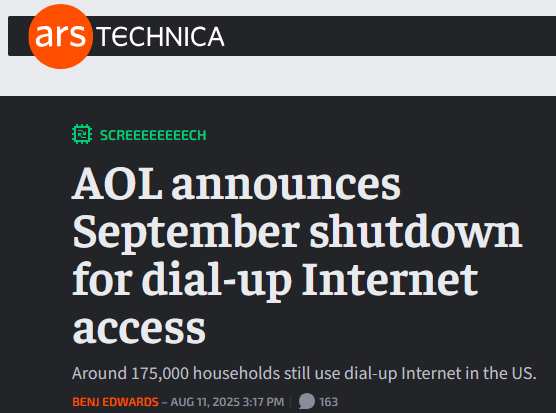user 348755
Well-Known Member
- Joined
- Jul 25, 2025
- Messages
- 45
- Reaction score
- 58
There are risks but it's better than finding out the hard way.That's like asking an MMA fighter if his sister is as ugly as everyone says she is...

There are risks but it's better than finding out the hard way.That's like asking an MMA fighter if his sister is as ugly as everyone says she is...
Ew. No.Have a pickle beer while you ponder that question.
How long must a lager lager before a lager can be called lager? That said, wouldn't a lager still be a lager even if you skipped lagering?

That's a really good post. Unfortunately, to pursue it further is likely not within the scope of this thread. But yeah, willfully destroying what remained of the Breton Woods system makes Brexit look like a little oppsie.It's not everything (everything) is getting more valuable, it's that the dollar is getting less valuable. Or, rather, that after the dollar started decoupling from middle Eastern crude a couple of years ago, it's value is now inevitably floating down to the productivity of the US economy divided by the number of dollars denominating it. Probably it's got quite a ways to fall yet.
Or so I've heard. Anyway, we are poor now. Seems to me that, at some point, that should encourage Homebrewing. I think the future of the hobby will be more like the past than the present--more plastic buckets, less stainless steel.
Honestly those were great times though.
I've got a garage full of stainless steel including a mash tun which will hold enough grain for a 50-60 litre batch, kettles of the same size and 4 SS conical fermenters.Or so I've heard. Anyway, we are poor now. Seems to me that, at some point, that should encourage Homebrewing. I think the future of the hobby will be more like the past than the present--more plastic buckets, less stainless steel.
Honestly those were great times though.
I agree to some extent. Basic brewing knowledge is the most important part.I can clean my fermenters with dilute household bleach, which costs nothing, and know that everything the bleach has touched is well and truly dead. (Bleach should not be used on SS).





![Craft A Brew - Safale S-04 Dry Yeast - Fermentis - English Ale Dry Yeast - For English and American Ales and Hard Apple Ciders - Ingredients for Home Brewing - Beer Making Supplies - [1 Pack]](https://m.media-amazon.com/images/I/41fVGNh6JfL._SL500_.jpg)










I throw mine in the washing machine with a couple scoops of Oxyclean (or generic equivalent).Adequately strong bleach also works as a cleaner. Try soaking a used BIAB in a hot 1:10 bleach solution after a PBW soak and marvel as the grossness removed.
Adequately strong bleach also works as a cleaner. Try soaking a used BIAB in a hot 1:10 bleach solution after a PBW soak and marvel as the grossness removed.
Sometimes oxy, sometimes bleach. Rotation is king!I throw mine in the washing machine with a couple scoops of Oxyclean (or generic equivalent).
Bleach, even without any added surfactants is quite a good cleaning agent. Against biofilms, it will break down the film, exposing the nasties and killing them, but it will often require the mechanical action of scrubbing to completely dislodge the film. Nothing like a good scrub.I agree to some extent. Basic brewing knowledge is the most important part.
Just wanted to clarify - Bleach is acting more like a sanitizer than a cleaner. It kills things but a cleaner like PBW works to remove things. Or physical scrubbing can help remove things.
I can't disagree but PBW is like a good scrub!Bleach, even without any added surfactants is quite a good cleaning agent. Against biofilms, it will break down the film, exposing the nasties and killing them, but it will often require the mechanical action of scrubbing to completely dislodge the film. Nothing like a good scrub.
I gotta say that I was a little bit surprised to read this perspective from someone twenty years younger than me, but I guess the "beer desert" thing is the explanation. Over the years I've gotten cheap and/or free equipment from a few guys who had stopped brewing basically for this reason, but they were all my age or older. One guy said he got into brewing when he got out of the army because after being stationed in Europe for most of six years he just couldn't make himself drink American beer anymore and most of the few imports you could find were stale by the time you got them. But twenty or thirty years later finding a variety of good beer just wasn't an issue anymore.
That's definitely weird. Here in Texas, we'll have someone watch our beer while we're doing dumb stuff. After all, this is the home of "Hey y'all, hold my beer and watch this!!!"The "Zion Curtain" thing was bizarre. By law there had to be some physical barrier between the patrons and the place where drinks were poured. No line of sight. Luckily, nobody put roofies in our drinks.
That's definitely weird. Here in Texas, we'll have someone watch our beer while we're doing dumb stuff. After all, this is the home of "Hey y'all, hold my beer and watch this!!!"

Lots of counties in Texas used to be "dry" and required "membership" in a "club" in order to purchase alcoholic beverages. Fortunately, most establishments had instant membership arrangements available to facilitate having a beer with your steak(s).That's definitely weird. Here in Texas, we'll have someone watch our beer while we're doing dumb stuff. After all, this is the home of "Hey y'all, hold my beer and watch this!!!"
About 50 gallons a year…as a true lagerhead this is becoming way too personal!How much lager could a lager head lager if a lager head could lager lager?
About 50 gallons a year…as a true lagerhead this is becoming way too personal!
Thought I'd go back to the original post to remind myself what it is no one wants to say.Craft beer is declining. Homebrewing is dying. The macros are gaining market share while small breweries are closing. Everytime someone brings this up, there's alwasy somebody around to point out that this isn't true. But when compared to it's heyday, craft is on a major decline.
In my area, three micros closed their doors in the last year and the two closest to me are hurting and have too much debt. The largest homebrew shop near me has closed after 20 years of service at that location and another big one only opens once a week and has been sold and moved to another area.
The kids aren't drinking as much, the adults are sick of weird beers and are going back to BMC and the only thing on the shelves is an endless selection of terrible IPAs.
I don't care if this gets heat, I know a lot of people don't like to talk about it, but when an industry that was started by your local HBS largely only exists online, it's bad. There are any factors, but I think the major one is that most micros simply don't make good beer. It was enough when the market was growing and people were experimenting and willing to try anything, but these days, your roasted coffee oatmeal sour milk stout isn't going to pay the bills. I think a lot of people are being alienated by brewers with an endless appetite for innovation and wonky creativity and almost no regards for traditional processes, balance and quality control. I went on a mini beer pilgrimage not too long ago and of about 15 different styles of beer I drank, I remember only 3 or 4 that were well balanced, well elaborated and didn't suffer from some sort of defect. Unfortunately, I don't think this is going to change any time soon when brewers seem to take more pride in pushing every convention to it's limit more than they take pride in selling a second serving of the same beer.
Anyway, rant over. I'll go back into hiding for now.
Im not denying that homebrewing is in decline, just wondering if it's really the case.
My skepticism of the claim is not about homebrewing declining from where it was, say, pre-Covid, but the claim that craft beer is declining... from what the OP called "its peak." As I pointed out, no matter what time you considered to be its peak (2010, 2015, 2018, etc.), there are more breweries in the US now than there were then.It's really the case. Certainly compared to, say, 2010, which imo was roughly Peak Homebrew, there has been a precipitous decline in the number of folks brewing at home. It's inarguable at this point...
Cheers!
It's about the food service industry having excellent lobbyists who have successfully maintained a drastically lower wage for servers, who must then depend on tips to survive.It's time I got to the bottom of this because I just don't get it:
The barman gives you a short measure- 13oz instead of 16oz- and then you tip him 20%!!!!
Aren't measures regulated? If you order a pint, aren't you guaranteed a pint? Are the prices published in dollars per pint or just a non-specified "glass"? When you fill up your tank with petrol (gasoline?) do you pay per gallon or does the guy pull a figure out of the air?
Why do you tip if you don't want to?
What is a "tip screen"?
Just pay for your beer and tell the server to faff-off. What would happen if you didn't tip? Would they call the cops?
I've never tipped in a bar, ever, and I've never been asked to.
Sure, if the bar's quiet and I'm having a friendly chat with the landlord or barman I'll offer him a drink, but never a tip. I don't think we even have a facility for offering tips in a pub.
What's it all about?
I guess I live in one of the last semi-beer desert areas. We get a few craft beers from Albuquerque/Santa Fe, stuff like Santa Fe Brewing and La Cumbre. But we only get one or 2 of their most popular offerings. Or Marble brewing-we only get their white, none of the beers I like from them. Occasionally we get Kilt Lifter from Arizona, or Fat Tire from Colorado. But that's about it. We have 2 microbreweries in our town. One has a dull, uninspired menu that hasn't changed in years, the other is open 3 or 4 days a week for a few hours at best. So it may not technically be a desert, but it's pretty close.But in a country with nearly 10K breweries, nearly no geography is a "beer desert" today. Drinkers can find all sorts of obscure offerings at craft breweries, at restaurants which have craft on tap, and you can find craft beer on supermarket shelves and most liquor stores will have massive offering. Craft beer is pretty much ubiquitous now.
There's only a smidgeon of rust on it. Right at the sharp point.And if you gave me the choice between stepping on a nail and trivia or karaoke, I would have to request more info about the nail.
What size are we talkin? 10 penny? Roofing? Ring shank or mastic coated? Plywood or 2x4? Boots or sneakers? When was my last tetanus shot?There's only a smidgeon of rust on it. Right at the sharp point.
That's really interesting. That page has info that wasn't on any of the sites I looked at before. If we consider production to be what determined the "heyday" of craft beer, it would be 2019 with a drop in 2020 (likely due to Covid) and it then coming back up but only to 2017 levels in 2021 and then down now to roughly 2015 levels. Though overall, it looks like the massive rise essentially hit around 2014 and has stayed roughly around that level since then with the highest production volume in 2019.The 2024 stats from BA, with lots of neat graphs showing the trends. Basically, production volume and market share (Bbls) of craft beer down, but retail sales volume up (higher prices).
https://www.brewersassociation.org/statistics-and-data/national-beer-stats/
Perhaps in some areas, but most places it seems more like a direct proportional relationship. It would be interesting to see a study on this, which I doubt exists.I'd have thought, if there was any correlation between craft beer sales/brewery numbers and homebrewing, that it would be an inverse relationship?
Perhaps in some areas, but most places it seems more like a direct proportional relationship. It would be interesting to see a study on this, which I doubt exists.
With regard to stores, maybe this peeked peaked when Northern Brewer was initially sold and bottomed out when Bell's General Store was closed (the store was part of the Bells Brewery but the store was opened before brewing started). There will likely be a churn in stores as this industry continues to adapt to the changing economic and demographic environment.Is it [home brewing] really [in decline]? Does the closure of HBSs indicate a decline in home brewing or is it just a parallel to bookshops closing due to the likes of Amazon?

I think 98% of homebrewing topics have been adequately covered in books and magazines. You can tell by reading Zymurgy the past few years. They go off on tangents just to try to keep it fresh. AHA does cover new gear quite well.With regard to paid curated content (books, magazines) this may have 'peaked' around 2017 - many good books published in the 2015 - 2019 time frame. It is plausible that this market is 'mature' (much like amateur astronomy). In the last couple of years, two books have been published by expert USA-based brewers using a publisher in the UK.
I'm hard-pressed to think of many topics worthy of a new book.
Palmer (beginner to intermediate) & Zainasheff (intermediate) wrote books in those areas.Perhaps a beginners to intermediate guide to all in one systems, and maybe sections on BIAB and electric brewing.
Too small for a book. Too early for most suppliers to have 5 gal sized product (although MoreBeer has some). Appeals to advanced brewers (who may or may not be willing to talk about what they are experimenting with). Currated content providers (e.g. CB&B, BYO) who provide seminars as well as magazines will likely use the content first in their seminars and then later in magazine articles.Enzyme use for the homebrewer? As I understand it, those used to be purely available to the pros - things like ALDC are relatively new to the homebrew world, correct?
Pennsylvania also had these same “blue laws”. No sunday sales, no sales in supermarkets, no sales in gas stations as some places have. We have to buy beer in one store we call a beer distributor. Beer distributors are privately owned. For a very long time PA was a case state - you could only buy beer by the case. Unless you went to a bar. You could buy a 6 pack or a 40 oz from a bar for takeout. We have to buy wine and spirits in another chain of stores that are run by the state. There are no Total Wine stores in PA. They are in NJ and DE nearby. PA only in recent years has allowed supermarkets to sell beer and wine (no spirits) and there’s a tight oz limit on how much you can buy in the supermarket. They have a seperate register and they have to scan your drivers licence into their computer and its monitored. The other day I tried to buy a 15 pack of Ultra for my wife and a 4 pack of Backwoods Bastard and I was told it was over the limit. So my wife went back after me and bought the 4 pack. What was the point?Everyone typically points to the "no Sunday sales", or dry counties, or limits on buying in supermarkets, etc, as specific blue laws.